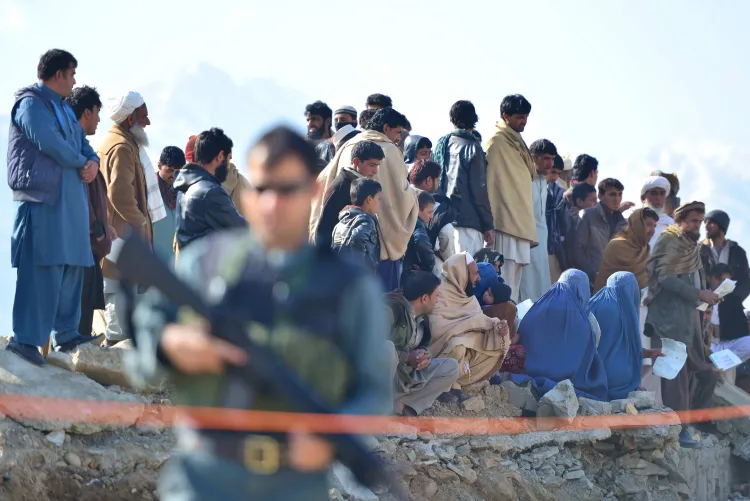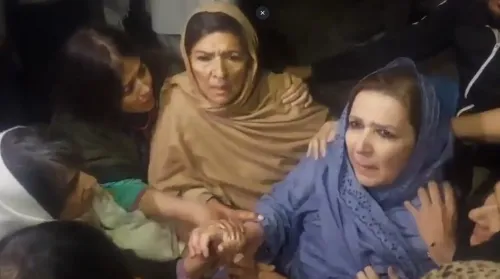Did Taliban Confirm the Deportation of Over 10,000 Afghan Refugees from Iran and Pakistan in Just One Day?

Synopsis
Key Takeaways
- 10,405 Afghan refugees were forcibly deported from Iran and Pakistan in one day.
- The Taliban reported the return of 1,763 families to Afghanistan.
- Many deported refugees are at risk of persecution in Afghanistan.
- A group of Afghan artists is seeking legal protection in Pakistan.
- The situation highlights ongoing humanitarian challenges in the region.
Kabul, Nov 20 (NationPress) Over 10,000 Afghan refugees were forcibly expelled from both Pakistan and Iran within a single day, according to a senior Taliban official on Thursday.
In a report shared by the High Commission for Addressing Migrants’ Issues, Taliban Deputy Spokesperson Hamdullah Fitrat disclosed that on Wednesday, 1,763 Afghan families, totaling 10,405 individuals, returned to Afghanistan, as reported by Pajhwok Afghan News.
Fitrat noted that these refugees returned from various points, including Spin Boldak in Kandahar, Bahramcha in Helmand, Islam Qala in Herat, Pul-i-Abresham in Nimroz, and the Torkham crossing in Nangarhar.
He added that 2,222 Afghan refugee families, which included 13,303 people, were relocated to their home areas, while 1,534 received humanitarian aid.
The previous day saw 7,326 Afghan refugees deported from both Iran and Pakistan, with almost 12,666 Afghan refugees returning after being forcibly expelled from these countries on Sunday.
In a related matter, around 400 Afghan nationals, including artists and their families, have approached the Peshawar High Court, urging the judge to prevent their forced deportation back to Afghanistan to avoid persecution, as reported by local media on Thursday.
The Afghan nationals filed a collective petition, asking for permission to remain in Pakistan as refugees. Petitioners include Zakiya Dunya Ghazal and other Afghan artists and their families, as highlighted by Pakistan's leading daily, Dawn.
They referenced a prior ruling by the high court from December 13, 2024, which addressed similar cases involving artists and transgender individuals, requesting a verdict aligned with that decision.
Named as respondents in the petition were various officials from Pakistan's Federal Interior Ministry, the Federal Secretary of the Cabinet Division, and the Directors General of NADRA, among others.
The petitioners argued that it is perilous for artists and musicians to live in Afghanistan following the Taliban's return to power, given their public opposition to events like music concerts. They stated that they had relocated to Peshawar after fleeing Afghanistan and emphasized that Pakistan's policy of forced repatriation contradicts existing agreements with the United Nations High Commissioner for Refugees (UNHCR) and the country's international obligations.









